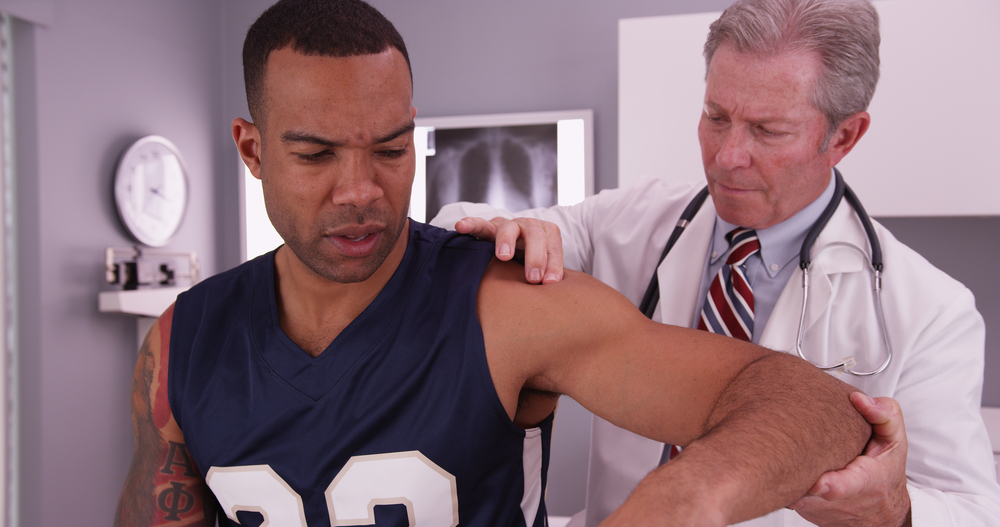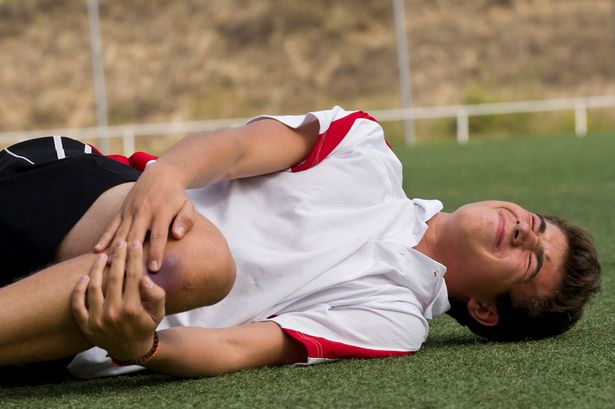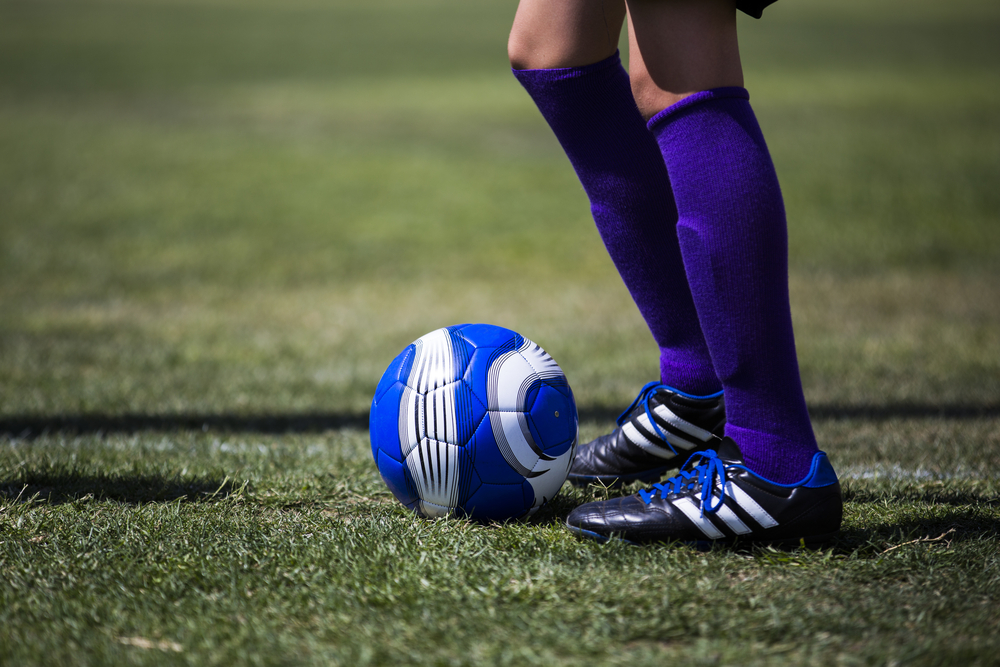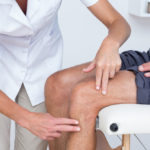Therapeutic Massage involves the use of a state licensed massage therapist to manipulate superficial and deeper muscle layers and connective tissue through various massage techniques that tend to enhance function, aid in natural healing, decrease muscle reflex reactions, promote relaxation, and improve health.
read moreWeekly News & Insights
MAJOR ANNOUNCEMENT: New Location Opening Soon!
on February 23, 2017Tissue Injury to the Body
on February 23, 2017Tissue injury to the body is a common issue we see in our patients. It can be from a sports injury, such as improper lifting of weights, or one that occurs through repetitive stresses, such as sitting in an awkward position with poor spinal posture while performing work duties or by improperly going through a sports training.
read moreHAVE YOU HEARD THE BIG NEWS? New Location Coming Soon!
on February 16, 2017Immediate Instructions If Injured
on February 16, 20171. If you get injured, STOP PLAYING IMMEDIATELY! This is an extremely simple concept that those who get injured can put into action immediately and easily. “Suck it up” and “Walk it off” are not good strategies for caring for an injury.
read moreUsing Sports and Exercise to Build Stamina
on February 9, 2017If you are a newbie, planning to use sports to build stamina, or participating in a rigorous exercise program to build up your body strength, no matter what your age, here is some information you need to know. These are basic preventive measures to help you avoid injuries through warm ups, routine fitness check-ups and stamina-building exercises.
read moreInjury vs. Soreness - Know the difference
on February 2, 2017The first thing that you must understand is that there is a significant difference between an injury and physical soreness. As soreness is common, usually something you will feel directly after exercising, being in a game, or some other strenuous activity, you must become aware of what soreness feels like. It’s very different from an injury.
read moreInjury Prevention
on January 27, 2017From my viewpoint as a Chiropractic Physician who sees injuries daily, I think that statement is extraordinarily accurate. Wouldn’t you rather know how to prevent an injury than to deal with one after the fact, when you are in pain and suffering?
read moreInjury Prevention: Don't neglect your nutrition
on January 19, 2017INJURY PREVENTION: Don't neglect your nutrition
In general, food is often neglected or overlooked when, in fact, it should be the cornerstone of your routine. As an athlete, your body requires certain nutrients so that it can be prepared to perform at its best. That being said, don’t ever go out and grab the first diet/nutrition plan you see.
Everybody is different and so are athletes. What works for one may not work for another. I believe that having a customized nutritional program is your best bet to ensure that it’s tailored to your specific needs and your particular sport involvement.
Often poor nutrition is the cause of injury, and this type of injury doesn’t go away all by itself. These are the injuries that linger and you may never feel the same again if you don’t take proper action. Injury can also lead to chronic inflammation, which results in further injuries that your body can’t repair properly.
Its far more critical than you know
In short - make sure that you eat the right foods. It’s far more critical than you know. If you don’t have the right nutrients to perform your energy levels will be low, and you may sustain an injury. If you don’t have the proper nutrition, it will be more difficult for you to recover after exercise or injury. If you get hurt and your nutrition doesn’t feed your cellular structure, the tissue can’t be repaired and that may lead to a whole slew of other problems. If the tissue doesn’t heal properly, it can’t perform at its optimum, and optimum performance is what you strive for in your sports involvement.
Then, when you try to push yourself through your routine exercises, like you always would, you might end up hurting yourself. Damaged tissue is an injury. When it comes to food, getting what you need, and getting it at the right time, in the right form, can help you avoid injury. If you do get hurt, the right food can help in the reparation of damaged tissues.
by Dr. Thomas M. Mitchell, D.C., CCSP | Owner, Clinic Director Chicago Institute for Health and Wellness Copyright © 2013
read moreDANGERS OF CONCUSSIONS CONTINUED
on January 9, 2017SIGNS AND SYMPTOMS
The Mayo Clinic staff (2016) states, the signs and symptoms of a concussion can be subtle and may not be immediately apparent. Symptoms can last for days, weeks, or even longer.
One very serious concern that people often miss about concussions is that the onset of symptoms may be delayed by hours or days after the initial injury.
People may experience the following symptoms with a delayed onset (Mayo Clinic, 2016):
- Concentration and memory complaints
- Irritability and other personality changes
- Sensitivity to light and noise
- Sleep disturbances
- Psychological adjustment issues and depression
- Taste and smell disorders
CHILDREN AND CONCUSSIONS
More research has been done on children and concussions since concussions with children are commonplace. As I have stated earlier, they should be treated within the appropriate time frames. It is sometimes difficult to diagnose a young child with a concussion, but you can look for these symptoms:
- Listlessness, tiring easily
- Irritability, crankiness
- Change in eating or sleeping patterns
- Lack of interest in favorite toys
- Loss of balance, unsteady walking
The American Academy of Pediatrics (2016) recommends that you call your child’s doctor for advice if your child receives anything more than a light bump on the head. If your child remains alert, moves normally, and responds to you, the injury is probably minimal and usually doesn’t need further testing. In this case, if your child wants to nap, it’s OK to let them sleep.
If worrisome signs develop later, seek emergency care. I would take this one step further because even a mild concussion should be evaluated for further treatment. Injuries in young athletes can be cumulative if not treated promptly, or if they return to play too early.
The Mayo Clinic (2016) recommends, and I agree, seeking immediate medical attention if you or someone you are caring for has a head injury and begins experiencing the following symptoms:
- Vomiting
- Headache that worsens over time
- Changes in his or her behavior, including irritability or fussiness
- Changes in physical coordination, including stumbling or clumsiness
- Confusion or disorientation
- Slurred speech or other changes in speech
- Vision or eye disturbances, including pupils that are bigger than normal (dilated pupils) or pupils of varying sizes
- Changes in breathing pattern
- Lasting or recurrent dizziness
- Blood or fluid discharge from the nose or ears
- Large head bumps or bruises on areas other than the forehead, especially in infants under 12 months of age
In any case, the concussion needs more than just a brief evaluation; the patient should be treated for the whole brain and not just for cognitive function. If other areas are damaged they must get the help, and the rest they need.
Reference: http://www.mayoclinic.org/diseases-conditions/concussion/basics/symptoms/con-20019272 (2016).
read more














